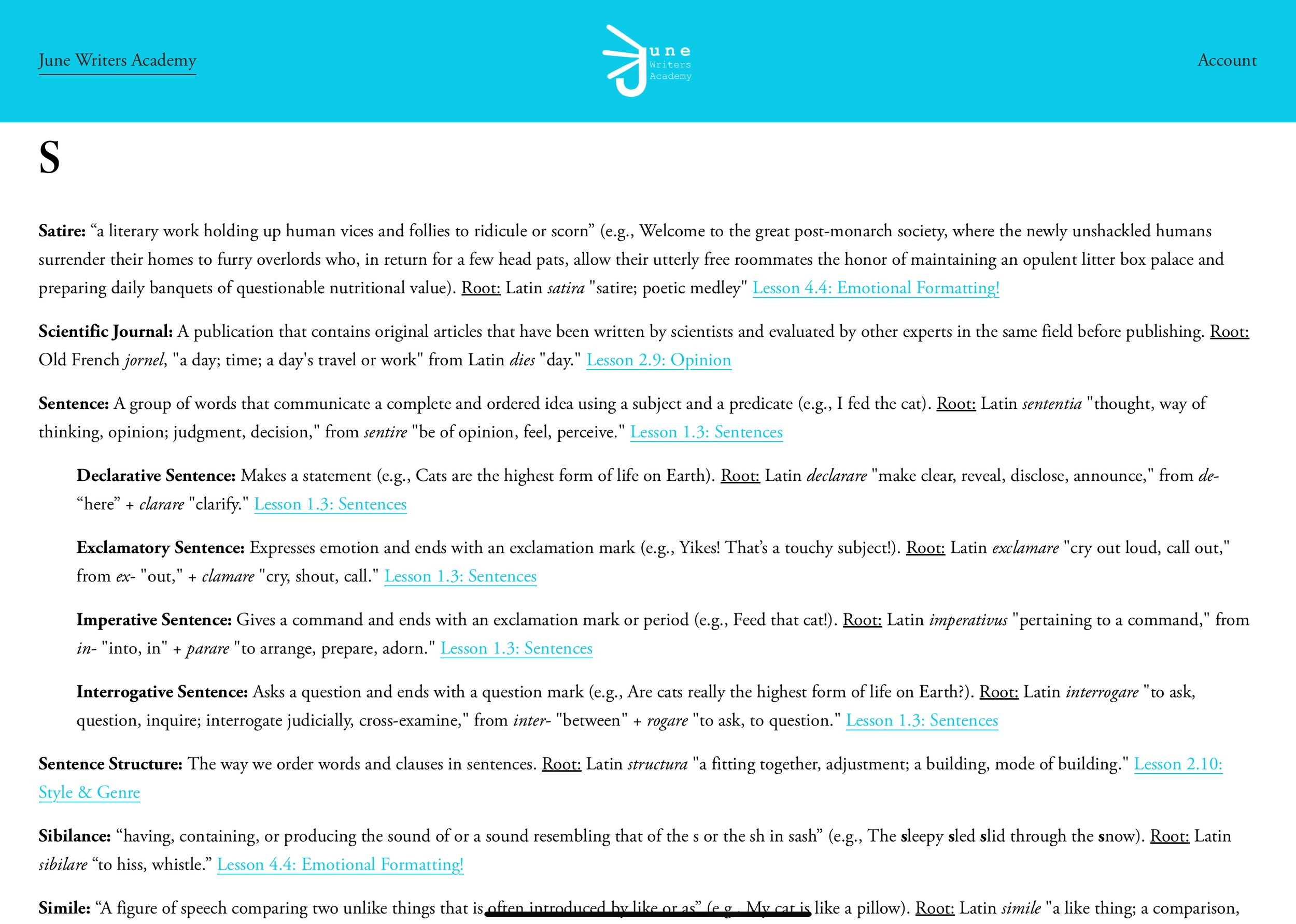The June Writers Academy Blog
Your guide to supporting your child’s development as a writer and thinker.
Common student issues in Lesson 1.8: Plurals & Possessives
Common issues kids have when learning about plural and possessive words—and how to help them conquer problems.
Parent Tip: Clear writing & sentence structure
A common high-school writing mistake and how to fix it.
Parent Tip: Switching to a formal voice
How to help your child develop a formal voice without gimmicks.
Parent Tips: Reading and writing poetry
Our tips for teaching your child to read, write, and edit poetry.
Parent Tips: Practices 1.3.2, 1.3.3 & 1.3.4
How do I teach my gifted kid foundational sentence grammar—especially if s/he already writes beautiful sentences?
Parent Resource: Preparing your gifted child for writing assessments
Download our guide to preparing your gifted child for school and special program writing assessments.
Parent Tip: Spacing
Tips for helping your child learn spacing conventions in Lesson 1.1: Spacing.
Help! Which level is the right starting point for my kid?
We are frequently asked by parents where their children should start in our curriculum. So, we’ve put together some tools that will help you get a sense of where your child fits into the June Writers program.
Parent Tip: Writing essays
What does it take to write juicy essays with relative ease beyond the basic ability to write mechanically sound sentences and type or handwrite at length (both important)? The following are what June Writers ensures kids learn before they tackle essay writing:
Help! Which level is the right starting point for my kid?
Our updated guide to where your child should start in our curriculum.
Parent Tips: Lesson 3.3
In Lesson 3.3, we ask kids to adapt existing paragraphs to appeal to specific audiences.
Parent Tips: Lesson 3.2
In Lesson 3.2’s practices, we are asking your child to put together the concepts of audience and argument, which is a Big Brain Leap.
Parent Tips: Editing words & flow
What is editing for words and flow, and why is it an important skill for my child to learn?
Parent Tip: (Secular) Proverbs & Aphorisms
The fun and challenge of editing mangled secular proverbs and aphorisms.
Parent Tip: The value of metaphor
The value of teaching kids to write and think in metaphors.
Parent Tip: Writing first drafts
What to do if your child struggles to write a first draft.
Parent tip: Erratic verb tense and your child’s wild mind
What to do when your child’s writing doesn’t follow linear time conventions.





















